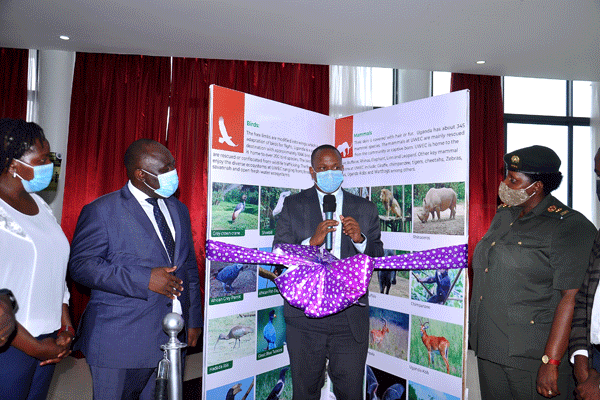Prime
NWSC calls for environment protection in Ankole

NWSC general manager for Mbarara area Francis Kateeba inspects a water collection tank in Booma, Mbarara on Monday. PHOTO/FELIX AINEBYOONA.
What you need to know:
- The cost of treating water in Mbarara considering only use of chemicals has increased from about Shs96m to Shs150m per month over the last two years due to deteriorating quality of water in River Rwizi.
The National Water and Sewerage Corporation (NWSC) regional manager for Mbarara, Mr Francis Kateeba, has called upon residents of Ankole Sub-region to stop degrading the environment to enable them get clean water.
Mr Kateeba made the remarks while addressing journalists at NWSC offices in Mbarara City on Monday.
He said they are facing difficulties in generating water for Mbarara City and other neighbouring districts due to the destruction of River Rwizi.
“Right now, Mbarara has grown, we are working in 13 branches in the Mbarara area. We have more than 30,000 metres and we entirely depend on River Rwizi as our major water source. For the last two weeks, we had water shortage in some parts of Mbarara which was basically caused by electricity supply,” Mr Kateeba said.
He also said NWSC is faced with a challenge of decreasing water levels at River Rwizi. Mr Kateeba said the conservation of River Rwizi needs a multi-sector approach which involves all stakeholders.
“For us, we pump water from the River Rwizi, but controlling how to protect the environment needs a combined effort. When water reduces, we have to put embankments to raise the levels,” he said.
The principal quality control officer at NSWC in Mbarara, Ms Jackie Sparks, said NWSC is spending a lot of money so that locals can get clean water because of the poor quality of water they receive from River Rwizi.
“The cost of treating water in Mbarara considering only use of chemicals has increased from about Shs96m to Shs150m per month over the last two years due to deteriorating quality of water in River Rwizi,” Ms Sparks said.
She said the poor quality of water in the area is caused by small industries that discharge their untreated waste in the river as well as people draining their faecal matter into the water source.
Ms Sparks asked locals to be vigilant and protect River Rwizi to save the city from facing water challenges.
“Let each one of us play their role, people that are making bricks just a stone throw from the river, people that are cutting trees and also people that are encroaching on wetlands. Everywhere because this River Rwizi is a big catchment for Ankole,” Ms Sparks said.
On average NSWC has been producing about 14,000 cubic metres (14 million litres) of water per day, but for the last few days, they have increased production to 16,000 cubic metres (16 million) litres after boosting water levels at the source with embankments.




